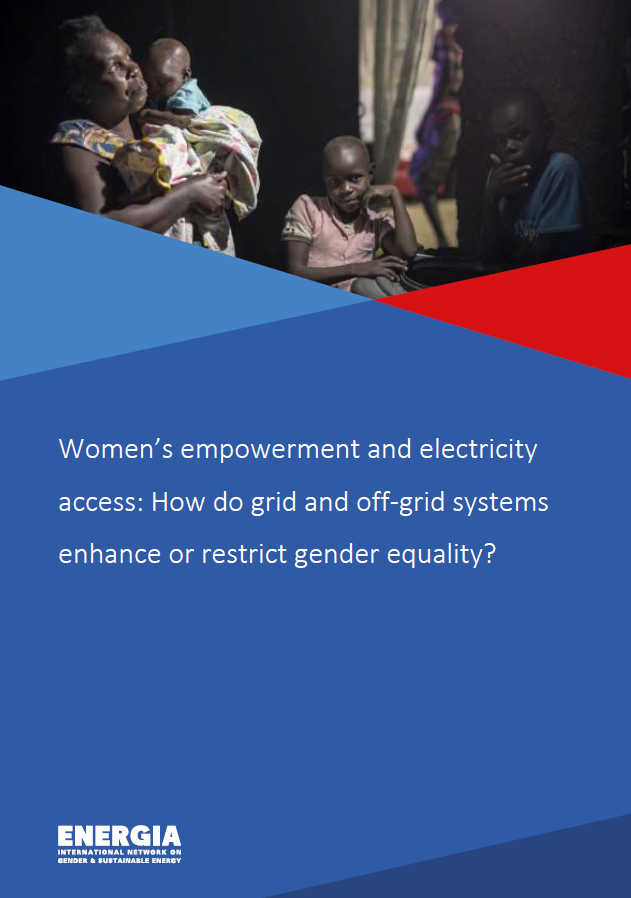Women's empowerment and electricity access: How do grid and off-grid systems enhance or restrict gender equality?
 |
publicación Jan 2019 ; 163 páginas
Aut. Deborshi Brahmachari & Tanja Winther & Kirsten Ulsrud & Anjali Saini & Debajit Palit & Rashmi Murali & Margaret N. Matinga & Mini Govindan & Henry Gichungi & Bigsna Gill
Ed. Energia - The Hague
Formato descargable: PdF
Un editor presentación
Resumen:
This report presents the results from a four-year independent research project exploring women’s empowerment through electricity access, with particular attention to comparing the effects of electricity provided by the grid and off-grid systems. Contents:
Executive summary p.9
1. Background, objectives and methodology p.38
2. Gendered study contexts and 14 gendered systems of
supply p.47
3. Wider implications of women’s recruitment in local supply p.52
4. Electricity: failing to improve the quality of public services p.56
5. The gendered access to electricity p.65
6. The location of lights in people’s homes p.74
8. Electricity’s uses for productive activities p.81
9. How and why did electricity access affect women’s and
girls’ empowerment? p.85
10. Discussion of the impact of women’s involvement in supply p.101
11. Reflections on the analytical framework developed and
suggestions for further research p.108
12. Conclusions and recommendations p.112
Destino Audiencia:
Palabras clave: |
Países: |
India (CI) (DT) (HP) , Kenia (CI) (DT) (HP) , Nepal (CI) (DT) (HP) |
Editor/Difusor: |
|
Energia - The Hague - Países Bajos |
Si hay un enlace roto, estaremos encantados de recibir un mensaje: communication@pseau.org